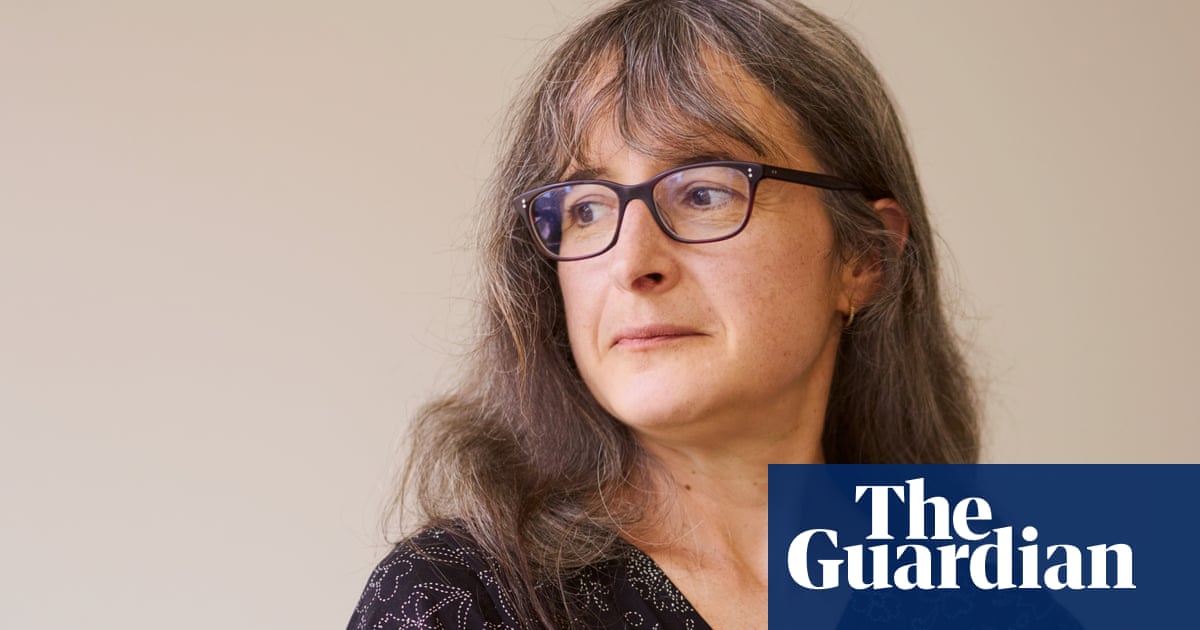Young Sarah is the lonely daughter of austere, unhappy postwar academics whose stingy love, penny-pinching and body-shaming contributed to a lifetime of food panic. Now Sarah is a celebrated novelist, an academic with a sharp mind, a spellbinding imagination and sizzling prose. But, throughout her memoir, My Good Bright Wolf, a toxic chorus whispers in her ear as she writes, calling her a liar. She can hardly begin a painful story – repulsive school lunches, gruelling family hikes – before the chorus interrupts to remind her of all she has, to ask if she’s really complaining. “I hope you’re not claiming that being taken hiking constituted suffering.”
And she isn’t. “I have been a person to whom systems are often fair,” she says, in the middle of a harrowing episode in a medical ward, a passage which should probably just be about that. But the voices have never let her live, or allowed a second go by unanalysed. They are her hard-working ancestors, her parents, haunting her memoir as they haunted her childhood, worsening her food shame and body dysmorphia, teaching her that pleasure isn’t for her. In response she conjures a wolf to whisper wise encouragements to her child self, to haunt the past as past voices haunt her present.
The childhood Moss describes is devastating, though she is assiduous in pointing out at the beginning that “memory is fallible” and “the closest people have incompatible stories of shared experience … I speak only (at last) for myself”. The undoing of this clever, hungry girl who is willing to do anything to prove she has self-control, that she’s worthy of her parents’ love, is described with such tenderness and poetry, it is enough to make this important literature: for women, for trauma survivors, for those struggling with mental health and food issues, and for vulnerable people searching in the dark for their power.
But there’s a troubling layer that sits over the narrative, harming it. Moss frequently stops the flow to apologise for her privilege. “Privilege again, yes. Not everyone can grow their own salad.” At times the asides sound begrudging, aimed at an imagined jury of more vulnerable people who never asked to be part of her story. When connecting with a private doctor she badly needs, she stops to remind us that she’s “fully aware of the privilege involved in this arrangement. Without it, you would have died, or at least, as many do, entered a revolving door of hospital re-feeding, discharge and repeat starvation. It is not clear to you how that would have improved the world for anyone.” Who on earth suggested that it would?
Even in the otherwise excellent critical analysis of her childhood literature, she can’t stop herself. Jane Eyre sitting “cross-legged, like a Turk” gets a parenthetical “hello again, feminist racism”. As an Iranian I want to scream: we do sit cross-legged, and so do our neighbours the Turks. I’m sitting cross-legged now. We like it. Tell your story! In the best scenes, Moss does lose herself in memory. The hand-wringing academic recedes, and the storyteller transports us to the inner world of a badly neglected child who truly did not have enough. We see her as she was, unarmed, and we suffer with her. That girl’s voice is wonderfully honest and raw: “Exams did not expect you … to cook a meal without ingredients … You simply had to answer questions … and during that time you would be warm and safe and uninterrupted.” Sarah (the character) comes alive when she’s fallible, stumbling. When she hides her first eclair instead of eating it, we are devastated for her precisely because she isn’t all-knowing. She miscalculated: “It is not easy to dispose of a mouldy secret eclair when you are seven.” And we cheer for adult Sarah when she stands up to sadistic nurses in the hospital ward, or when she delves deeply into books, engages meaningfully with race and gender, and comes up with glorious insights.
Sometimes, Moss the writer understands that Sarah has been grotesque –complaining at an exclusive artist residency, for example – and she can’t help putting on her armour again, telling us she sees (really sees) her own hypocrisy or ingratitude or white privilege. She forgets that we are on her side, that what she interrupted wasn’t our judgment but our empathy for her tragedy, a story that (like her body) deserves to take up its own space.
The American critic John Gardner advised writers never to let their reader out of the dream, to remove analytical scaffolding, leaving rich, pleasurable subtext, all the unsaid things that the reader understands but the character doesn’t. It’s tough to do that in memoir where the unwitting character is you, to be raw and ugly on the page, trusting the reader to know that the act of honest writing is understanding. If you jump in and flog yourself (to say “I see it, too!”), you drain the memories of their power. But Moss never lets us forget her thinking self; she tries to inoculate her writing from even this criticism. “Does your self-reproach alleviate one mote of injustice? Chatter is not activism.” I see how clever she is, but I’m out of the dream again.
That said, in memoir as in most art, the unintended cracks often make for the most revealing, instructive aspects of the work. Moss’s hand-wringing, the voices that haunt her, contain a sad beauty. They’re part of her trauma. They damage but don’t break her thought-provoking, tender midlife memoir, just as they damaged but didn’t break a brilliant mind.
